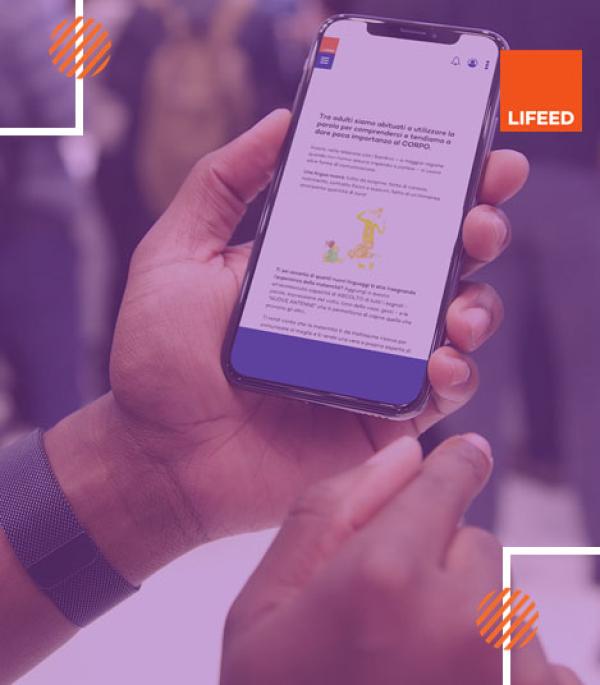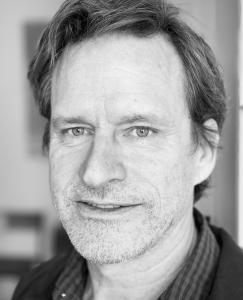Online educational programme translates parenting job skills into tools for the workplace
When Riccarda Zezza returned to corporate life in Milan after her second maternity leave in 2012, her supervisors assumed that she’d be taking a less active role at work. She was not put back in her old position as a manager.
“It sounded really strange to me that the company was asking me to step back because I had two children — ‘because you have other priorities,’” she recalls. “I said, I have a lot of priorities. They all work together. And I want to give more now. I don’t want to give less.”
She remembers a crisis management training in which the participants were asked to use a flight simulator for 20 minutes to test their mettle under emergency conditions. “When I got home that night, there was my two-year-old toddler running in my direction. And I thought — this is crisis management, and much better training than a flight simulator for 20 minutes. It’s every day, high-motivation training for free. Why am I not using that?”
That’s when she got the idea for her company, LIFEED, which helps people connect the skills they develop in daily life — as new parents or caregivers for ageing parents, for example — with the skills they need in their careers.
Embracing multiple life roles
Riccarda quit her job to develop her idea, researching and developing a programme with psychologists and other experts that would help people understand the value of their life experiences — especially the most challenging ones. It was the start of a new learning methodology called Life-Based Learning that enables people to reflect on what is going on in their lives and connect it to their professional skills.
“It’s a perspective we have in our Western culture, that when we have more roles, they conflict with each other,” Riccarda says. “But science has shown that more roles don’t conflict with each other. People with more roles can have more resources and a better balance.”
Riccarda uses the example of her children when talking about how this works both ways, enriching work and home life. “I had the classic problem mothers have, of how to say no to your children. I would feel guilty, and I wouldn’t want to say no. But I had no problem saying no to people at work, because I’m very respectful to them, and I didn’t feel guilty because I knew why I was saying no and I explained it to them. So I started explaining to my children why I was saying no, and it removed the guilt.”
Conversely, one of the things she cherishes about life at home is being caring with her family “and being caring makes me feel good, so I started allowing myself to be more caring at work.”

LIFEED helps people connect the skills they develop as parents or caregivers with the skills they need in careers.
Demand for soft skills
LIFEED has resonated with many businesses in the corporate world that want to cultivate the soft skills of their employees. The company, which has a staff of about 40 people, has more than 20,000 users. It says that 95% of the clients renew each year. Clients include the city of Milan, where LIFEED is based, Accenture, Crédit Agricole, the Italian Post Office and Danone.
LIFEED was one of the finalists in the 2020 Social Innovation Tournament, which is run by the European Investment Bank Institute to help entrepreneurs find new solutions to society’s problems. LIFEED uses an interactive website for its programmes, which typically take six weeks to two months to complete. Users answer questions about their lives and then LIFEED tailors a programme to their needs, with exercises that connect the dots between home life and work.
The company decided to go digital to reach more people and to penetrate daily life more effectively than by teaching the programme for just one day in a classroom. The online model also allows LIFEED to collect data that can be used in broader ways.
“My intention is to change the culture, and data are precious for that,” Riccarda says.
Pandemic response
The company responded to the COVID-19 pandemic by creating a new training programme to help people deal with the new stress— like working at home, dealing with serious illness, and sometimes grief.
Rossella Mandalà, who works in human resources in a company of about 200 people, had just moved to Paris for a new job when the pandemic hit last year. She helped administer the LIFEED programme at her company and took the nine-week course called Transitions.
“The part of the course I appreciated the most was the guided reflection practice,” she says. “During this time I’ve really missed the human touch. I’ve been working like everyone in front of a screen. This practice of writing helped me put things in perspective.”
The programme also had a communal space where employees taking the course could share their thoughts, worries, and concerns, adding to the sense of not feeling alone in this fraught period.
Riccarda says that no matter the transition or crisis people are facing, sometimes their own best teacher is the one they see in the mirror. “We call it Life-Based Learning. And the knowledge is very down-to-earth,” Riccarda says.
“So we address the biggest problem of training, which is mostly the motivation of people — people don’t learn if they’re not motivated. But if you find the connection between what you’re taught and your own life, then suddenly you’re motivated to learn.”
